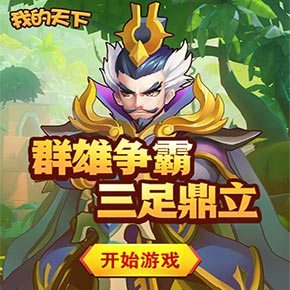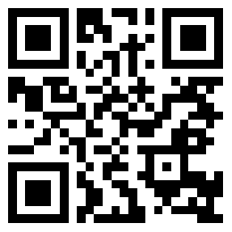自豪!中国留学生哥大毕业典礼演讲:我来自中国,我要倾听世界的苦难(组图)


“哥大教会了我,如何倾听世界的声音”
2019年5月19日,哥伦比亚大学文理研究生院 (Graduate School of Arts and Sciences)毕业典礼上,来自中国的字同学从上千名毕业生中脱颖而出,作为2019届毕业生代表发言。

图源:哥大全球中心
字同学是哥大2019届口述历史专业毕业生,因为学习的专业很小众,她遭受了很多误解。
在演讲开头,她调侃地说直到她毕业,她的妈妈也不太理解她学的到底是什么,99%跟她交谈过的人都不知道什么是口述历史,常常将口述历史和艺术史搞混。
对于字同学来说,口述历史就是通过对特定人群的采访,记录他们的亲身经历,以此来研究人类历史。

字同学向全体同学介绍了哥伦比亚大学悠久的口述历史研究传统。
早在1948年,历史学家兼记者艾伦·内文斯就在哥大设立了世界上第一个机构性质的口述历史项目。哥大口述历史研究中心至今拥有超过两万小时采访录音和转录文稿。

图源:https://www.ccohr.incite.columbia.edu/history
直到今天哥伦比亚大学依然是美国唯一一所设立口述历史硕士学位的学校。字同学当初申请研究生时只申请了哥大这一所学校,她被顺利录取,成为哥大口述历史专业的第十届硕士生。

图源:UnionDocs
在哥大的两年学习生活中,她听到了很多边缘人群的故事。她曾经采访过纽约地区的少数族裔,反对种姓制度的南亚活动家,纽约大学海地语语言学家,在布鲁克林教孩子们加勒比非裔原住民音乐的黑人音乐家。
她说,这些故事让她看到了平凡人是如何用自己的方式来保护自己历史文化传统,她听到了他们的独一无二的故事,她记录下来自少数群体的发声。
她在这些故事里看到了我们人性中最真实的一面,有脆弱也有坚强,有苦痛也有爱和希望,而这些是我们全人类所共有,超越种族,超越文化,跨越了所有时空界限。

图源:Columbia Daily Spectator

字同学说,哥大的学习教会了她如何倾听,不仅要倾听家人,伴侣,朋友,更要倾听世界的声音。
她呼吁所有人作一个关心社会,关心不同族群,关心不同文化,关心不同视角的有责任感的世界公民。
当世界媒体都把镁光灯投向美国的橄榄球赛的时候,你可知道一些非西方国家的平民正在恐怖袭击中丧生?
外国主流媒体BBC, CNN的不到30秒,一晃而过的镜头就能让你真正了解一个国家,一个民族吗?无知会滋生傲慢,傲慢会导致误解和偏见。

图源:broadcastdesign.com
正因为看到了先进主流媒体的弊端,字同学才在毕业典礼上向全体同学呼吁,不要忽视任何一个群体的声音,我们身为未来世界的希望,应该去倾听更多的声音,那些被人忽视的声音。
当谈到倾听的重要性的时候,字同学说倾听本身也许不能立刻解决问题,然而我们是需要被倾听的,当我们的故事被更多的人听到的时候,当沟通的桥梁成功架起,改变或许就会来临。
每个人的声音都值得聆听,因为没有人是一座孤岛,我们的命运紧密相连。

图源:Columbia Daily Spectator

在毕业演讲中字同学表达了对哥大的由衷感谢。在读书期间,她失去了两个挚爱的人,她的好朋友和从小养育她的姥姥相继离世。
在人生最黑暗的时刻,哥大的老师们听到了她求助的声音。哥大口述史项目主任玛丽·马歇尔·克拉克、艾米·斯泰尔彻斯基,还有字同学的教授盖里·埃尔波尔里,他们及时的向字同学伸出了援手。
当字同学感到痛苦和绝望的时候,当她开始对自己产生怀疑,不知道自己能否顺利完成学业的时候,她的老师们一直陪伴在她身边,倾听她的诉说,给予了她最需要的理解和帮助,耐心地等待她从黑暗中走出来。

图源:cancer.net
因为有了师长的倾听,字同学不再感到孤单,最终她战胜了自己的痛苦,把自己的脆弱转化成了向上的动力。她把自己对亲情友情和死亡的思考写入了自己的毕业论文。
两年后的字同学不仅成功地完成了学业,还以阳光自信的姿态站在了哥大的毕业演讲台上,代表上千名毕业生发言。

图源:South China Morning Post

曾经的我们不远万里漂洋过海来到了哥大,我们住过有着蟑螂老鼠的学校宿舍,我们吃过七刀一份的餐车盒饭,我们忍受着动不动就停摆改线的纽约1号地铁线。
我们曾经半夜三点在灯火通明的Butler Library赶过论文,我们曾经在Low
Library的台阶上吹过风,我们在Lerner Hall里跳过舞,我们在Dodge Fitness Center健过身, 我们让女神雕像给我们看过自行车。

图源:Facebook
我们因为一堂课的成绩不佳掉过眼泪,第二天又咬着牙爬起来,肿着眼睛去Hamilton前面的小花园里准备课堂展示。我们为了一个A去了无数次哲学楼里的写作中心。
毕业之后,回头想想,哥大的教育给了我们什么?
我想,哥大给我们的可能是一种全新的看待世界的态度,让我们的思想更开放,更包容。哥大的教育让我们懂得了要做世界公民,善于倾听,也勇于发声。
借汝之光,得见光明,得到了光明之火的我们也将尽己所能把这份光明传递出去,这样代代相传,人类文明得以延续。
以下为字同学英文演讲全文
Thank you Dean Alonso; Executive Vice President Tolstoy; faculty and staff; family; friends; and of course, the MA Class of 2019,
My mom still doesn't understand what I was studying at Columbia, and she is not alone.
About 99% of people I have talked to have no idea of what oral history is. I guess because of my accent of pronouncing it, after my attempts to explain, 75% of them would say, "Oh, that's little bit different from what I thought of art history".
I don't blame them. Compared to the traditional historical research, oral history is a fairly young and less well known field, which is the study of history by interviewing people who have personal knowledge of the past.
In 1948, historian and journalist Allan Nevins created the first institution-based oral history program in the world, right here at Columbia.
Since then, the Columbia University Center for Oral History Research has become the home of over 20,000 hours of recorded and transcribed interviews.
Today, Columbia is the only university in the country that offers the graduate program which solely focuses on oral history. And that's why I came to Columbia.
I remember the day I told my mom that I wanted to study oral history for graduate school.
She has lived in China her whole life, and oral history is even less known in my motherland. She was very confused but she wanted to be supportive. So she immediately replied, "Go for it! I'm sure you will be good at it."
Then after few hours, she asked me, "So sweetie, what was the thing you said you wanna study? And you know I love you, but are you sure that you can find a job after graduation?"
Yes, the fear of an unforeseen future was real. But still, I only applied to one graduate program, I got in, and I became a member of the 10th Cohort of Oral History Master of Arts.
Throughout the program, we learnt a lot about the methodology and practice of oral history. But if you want me to sum it up into one sentence, I would say, I learnt how to listen, not hearing, but listening. Truly listening.
At first, it was difficult for me to differentiate listening and hearing. In modern Mandarin, we only use the word 听 to express both hear and listen. For me, listen was hear, hear was listen, just like 听 was 听, receiving information with one's ears.
However, I was told multiple times throughout the program - for an oral historian, hearing your interviewees' stories was not enough. You have to be alert. You have to give consideration and thoughtful attention. You have to listen.
So I tried my best to listen.
The first oral history project I conducted at Columbia was a project I collaborated with AfroCrowd, Wikipedia in Fall 2017, focusing on the marginalized ethnic and linguistic communities within the New York City area.
During the semester, I listened to a young anti-Caste South Asian Dalit activist talking about the story of being discriminated and bullied in school because of her darker skin when she was three.
I listened to an NYU professor and Haitian linguist telling the story of being approached by a stranger who wanted to correct her "poor" French when she was speaking her mother tongue Haitian Creole.
I listened to a musician telling the story of starting his music entrepreneurship in Bushwick, Brooklyn and teaching Garifuna music to the children from his community.
I listened to the stories of passion, of pain, of childhood, of vulnerabilities, of pride, of discrimination, of womanhood, of love.
During my journey of listening to Maari, Wynnie, and James, I found myself documenting ordinary people fighting to preserve their heritage from an individual and intimate approach.
I found myself facing my ignorance of other cultures and languages. I found myself standing with them, reviewing on the complexity and inclusivity of civilizations that surfaced from personal narratives.
Then I realized the ability to listen should not merely be an oral historian's job. No man is an island. We own the obligations to be mindful when others are trying to tell their stories, because every personal voice, mummering or loud, matters.
In oral history, we believe what is personal is political, what is individual is public.
My cultural anthropology professor once told me that in today's media, a terrorist attack in a non-western country is not even as important as which team won the football game on Friday night. "The TV will only give 30 seconds to the non-western tragedy, and tragedy is what they only report on these countries", she said.
The neglecting of some voices encourages and fosters arrogance and discrimination towards certain communities in today's society, media and political context. And we, as the promising future of our world, need to change that.
If you ask me where to start the journey of listening, I would say, start with listening to other people's struggles in life.
I lost two loved ones during my time at Columbia.
My good friend Nan died of cancer in November, 2017. Then I lost my grandmother who raised me since I was a baby while I was working on my thesis. I was devastated, gradually falling apart.
I lost track of how many nights I couldn't fall asleep, staring at the ceiling like it would give me an answer.
I lost track of how many mornings I couldn't wake up, hiding myself from the sunlight like I could escape from everything.
There were many moments I doubted myself, would I ever be able to finish the program and move on with all the pain and grief?
However, someone at Columbia heard my creaking for help. No. They did not just hear it. They listened to it.
My program directors Mary Marshall Clark, Amy Starecheski, and my professor Gerry Albarelli were there, paying attention to my struggles, offering me understanding and help, and waiting for me to save myself from darkness with patience.
I remember Amy's emails. I remember the quietness of Mary Marshall's office, where she spent hours listening to my pain and convincing me that my vulnerabilities could be converted into my strength.
Eventually, I finished an oral history article documenting my personal account of love and death as my graduation thesis.
I landed in a job I truly believe in, bringing the ideas worth spreading to local communities around the globe. In other words, I couldn't be here without their listening to my struggles at the first place.
So my fellow of 2019 graduates, don't become the generation that is afraid of mindful conversations. Go listen, as families, partners, and friends.
Listening to others will not automatically grant answers to their questions, but your listening will make someone realize they are valued.
Sometimes one's lost soul just needs to be heard by one listener.
Go listen, as members of communities and concerned citizens. Listen to people from different cultural, political, and socio-economic contexts. Listen to their perspectives of the world you thought you were familiar with.
Become a humble student again in everyday's listening. Then utilize the knowledge and resources we harvested at Columbia, spread the words, build bridges, and wait for the changes you want to see in the world.
My mom visited me from China few months ago. She asked me to take her to my favorite place on campus.
I took her to the wall rolling the names of more than 151 countries at Lerner Hall. Everyday, it reminds me why I chose Columbia at the first place, for the stories, of different cultures, and of different voices.
Thank you and congratulations again to my fellow class of 2019! It's an exciting day. Let's celebrate and enjoy, and start listening to other people from today.









 +61
+61 +86
+86 +886
+886 +852
+852 +853
+853 +64
+64


